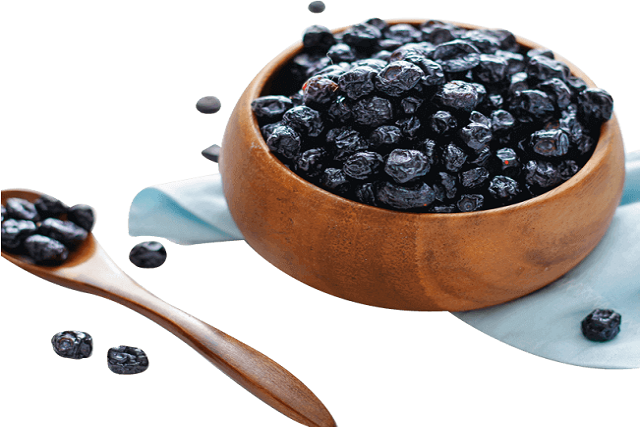When you think of brain health, do walnuts come to mind? These small, crinkly nuts are not just delicious — they’re nutritional powerhouses that have been celebrated for centuries for their health benefits. Their unique shape resembling the human brain is more than just a coincidence — walnuts genuinely support brain health and so much more!
Let’s crack open everything you need to know about walnuts — their nutritional profile, health benefits, usage tips, and why they deserve a spot in your daily diet.
🌰 What Are Walnuts?
Walnuts are the edible seeds of trees in the Juglans genus, particularly Juglans regia, also known as English or Persian walnuts. Originating from the Mediterranean region and Central Asia, walnuts have been a staple in diets for thousands of years.
There are a few types of walnuts:
- English walnuts – most commonly eaten worldwide.
- Black walnuts – stronger flavor, native to North America.
- White walnuts (butternuts) – more rare, milder taste.
The English walnut is what we typically find in stores and recipes, and it’s the one we’ll focus on here.

🧾 Nutritional Breakdown (per 100g)
Walnuts are calorically dense, but packed with vital nutrients:
- Calories: 654 kcal
- Protein: 15 g
- Fat: 65 g (mostly healthy fats)
- Polyunsaturated fat: 47 g
- Omega-3 ALA: 9.1 g
- Carbohydrates: 14 g
- Fiber: 7 g
- Sugar: 2.6 g
- Calcium: 98 mg
- Magnesium: 158 mg
- Iron: 2.9 mg
- Vitamin E, B6, Folate — in small but meaningful amounts
But what really makes walnuts shine? Their omega-3 content, especially ALA (alpha-linolenic acid), which supports heart and brain health.
🧠 Top 10 Health Benefits of Walnuts
1. Boosts Brain Health
Thanks to the high omega-3 content, antioxidants, and vitamin E, walnuts protect neurons and improve cognitive function. Studies show that regular walnut consumption improves memory, learning, and motor coordination.
2. Supports Heart Health
Walnuts lower LDL (bad cholesterol), improve blood vessel function, and reduce inflammation — all of which are vital for heart health. Just a handful a day can make a difference!
3. Helps Manage Weight
Despite being calorie-dense, walnuts increase satiety. Their protein, fiber, and fat combination help control hunger, making them ideal for healthy snacking.
4. Improves Gut Health
Walnuts act as prebiotics. They feed beneficial gut bacteria, which in turn improve digestion, immunity, and even mood.
5. Reduces Inflammation
Chronic inflammation is linked to many diseases — from cancer to arthritis. Walnuts contain polyphenols and omega-3s that reduce systemic inflammation.
6. Regulates Blood Sugar
Walnuts have a low glycemic index and their fats and fiber help balance blood sugar levels. They’re a smart choice for diabetics or those managing insulin resistance.
7. Supports Reproductive Health
Walnuts have been shown to improve sperm quality, motility, and morphology, making them a fertility-friendly food for men.
8. Strengthens Bones
Magnesium, calcium, and phosphorus in walnuts help keep bones strong and resilient, especially important as we age.
9. Protects Against Cancer
Research indicates that the antioxidants and phytochemicals in walnuts may reduce the risk of certain cancers, including breast and prostate cancer.
10. Improves Sleep
Walnuts naturally contain melatonin, a hormone that supports sleep cycles. A few before bed might just help you rest better.

🥣 How to Add Walnuts to Your Daily Diet
Walnuts are incredibly versatile. You can:
- Sprinkle chopped walnuts on oatmeal, salads, or yogurt.
- Add them to smoothies for a creamy texture.
- Use walnut butter as a nutritious spread.
- Toss them into curries or stir-fry for crunch.
- Use ground walnuts in baking (brownies, banana bread, muffins).
- Snack on them raw or roasted (unsalted for best benefits).
Tip: Soak walnuts overnight to improve digestibility and reduce phytates (natural compounds that inhibit nutrient absorption).

🤰 Are Walnuts Safe During Pregnancy?
Absolutely! In fact, walnuts are encouraged during pregnancy. They support fetal brain development, reduce oxidative stress, and help balance mood swings thanks to their high omega-3 and magnesium content. Just don’t overdo it — a handful a day is perfect.
🛑 Any Side Effects?
While walnuts are highly nutritious, moderation is key. Overeating may lead to:
- Weight gain due to high calories
- Digestive discomfort (if eaten in excess)
- Allergic reactions (for those sensitive to tree nuts)
🤔 Raw vs Roasted — Which is Better?
- Raw walnuts retain the most nutrients, especially antioxidants and healthy fats.
- Roasted walnuts have a deeper flavor but can lose some nutrition, especially if over-roasted or roasted in oil.
Choose dry-roasted or raw walnuts for the healthiest option, and avoid ones with added salt or sugar.
🛒 How to Store Walnuts?
Walnuts are high in oil, which makes them prone to going rancid. Store them in:
- Airtight containers
- Cool, dry place — best in the fridge or freezer for long-term storage
Smell them before eating — rancid walnuts will smell sour or paint-like.
🧡 Final Thoughts: Why Walnuts Deserve a Place on Your Plate
Walnuts are more than a snack — they’re a long-term health investment. From boosting your brain to protecting your heart, these humble nuts offer wide-ranging benefits. They’re nature’s perfect little package of health, energy, and flavor.
So the next time you reach for a snack, grab a handful of walnuts. Your body — and especially your brain — will thank you.






